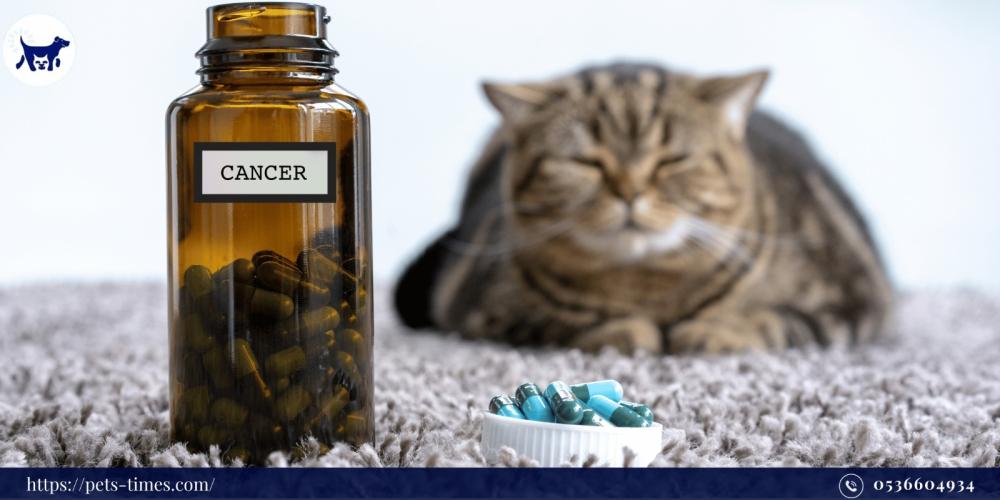Feline cancer is a serious disease that can affect cats at various ages. Early detection and appropriate treatment can improve a cat's chances of recovery or prolong its lifespan and quality of life.
What is feline cancer:
It is an abnormal growth of cells resulting from genetic mutations that lead to the formation of malignant or benign tumors. Tumors may appear in any part of the body, such as:
Skin (squamous cell carcinoma).
Lymphatic system (lymphoma).
Breast (breast cancer, especially in unspayed females).
Bones or internal organs such as the liver or kidneys.
Causes and risk factors:
Genetic factors: Some breeds are more susceptible.
Exposure to carcinogens: such as cigarette smoke or pesticides.
Viruses: such as feline leukemia virus (FeLV) and feline immunodeficiency virus (FIV).
Excessive sun exposure: Increases the risk of skin cancer.
Hormones: Unneutered cats are more susceptible to mammary cancer.
Treatment Options:
Treatment depends on the type and stage of cancer, as well as the cat's overall health:
1. Surgery: To remove localized tumors (such as mammary or skin tumors).
You can get all your pet supplies from Pets Time Store:
2. Chemotherapy: To kill metastatic cancer cells.
3. Radiotherapy: To shrink tumors before surgery or destroy any remaining cells.
4. Immunotherapy: To boost the cat's immune system to fight cancer.
You can get all your pet supplies from Pets Time Store:
GimCat Multivitamin Immune Support Chewable for Cats with Cheese 50g
5. Palliative Care: To relieve pain and improve quality of life in advanced cases.
Tips for caring for an injured cat:
Balanced nutrition: Provide a high-protein, high-calorie diet to support its body during treatment.
You can get all your pet supplies from Pets Time Store:
Hills on Care Dry Cat Food for Sick Cats with Chicken 1.5kg
Provide a comfortable environment: Avoid stress and provide a quiet place for rest.
Regular follow-up with your veterinarian: To ensure the tumor is responding to treatment.
Monitor for side effects, such as vomiting or hair loss (in the case of chemotherapy).
Neutering cats: Reduces the risk of mammary cancer by up to 90%.
Avoid exposure to toxins, such as smoking around cats.
Regular checkups, especially for cats over 7 years of age.
Vaccinations, such as against viruses such as FeLV and FIV.
You can get all your pet supplies from Pets Time Store:
Bio Pet Active Tablets, a nutritional supplement for kidney and liver health, 100 tablets
Bio Pet Active Cranberry and Vitamin C Tablets 20 Tablets
Beaphar Wound Care Ointment for Dogs and Cats 30ml
Frequently Asked Questions:
Is cat cancer completely curable?
It depends on the type of cancer and its stage of detection. Some cases are completely cured with surgery, while others require long-term management.
Is chemotherapy safe for cats?
Yes, but it can cause side effects such as lethargy or loss of appetite, which can be managed with medication.
How long does a cat with cancer live?
The lifespan ranges from months to years, depending on the body's response to treatment.
With modern medical advances, many cats can live fulfilling lives for years. The key is to recognize early symptoms and get a prompt diagnosis. Consult your veterinarian immediately if you notice any unusual changes in your cat.

